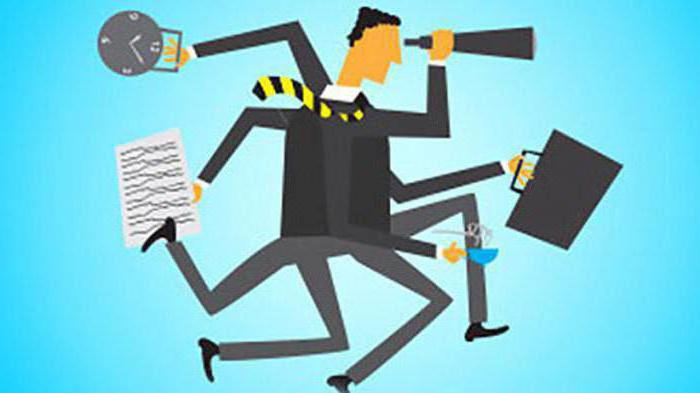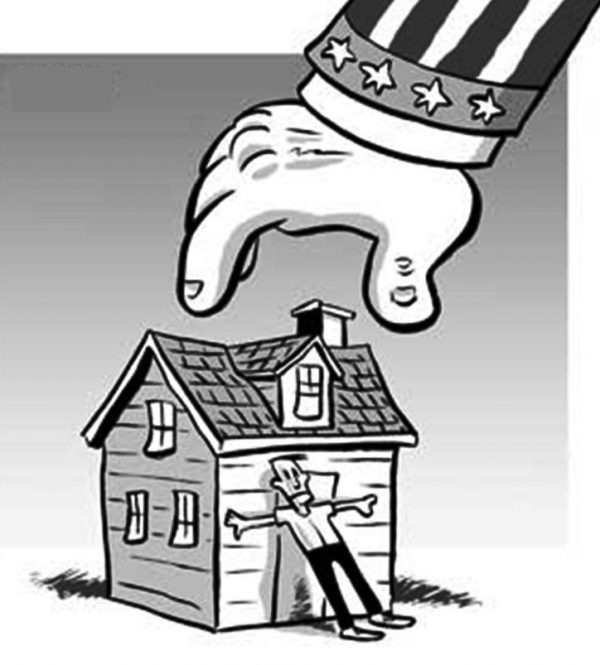Every day, individual entrepreneurship is becoming more popular. It is difficult to say whether this reluctance of people to work for someone influences this or whether it is still a matter of income, which is often higher for entrepreneurs. At the same time, not everyone who comes into the business has enough knowledge for a long-term and, importantly, profitable presence in the market. Here, for example, how does the ownership of individual entrepreneurs differ from the same rights of ordinary individuals? What are the features of this right? If you are at a loss to answer, we will expand our knowledge.
Definition of property rights
The most logical thing would be to start with what ownership in principle is (IP, not IP - it does not matter). According to the definition, the right of ownership is a set of rules of law that fix the ownership of any property to an individual or legal entity, in addition, the right of ownership determines the powers that these people have and protects their interests in case of encroachment on this very property.

The owner may dispose of his property on his own, without submitting to other persons.
How to get a property right?
Ownership rights are obtained by initial or derivative methods. In the first case, a person independently makes an item of property, acquires things abandoned by their previous owner (for example, picks them up on the street), collects fruits or berries (everything collected is the property of the person who collected it, of course, if he did not violate applicable law ) In the case of derivative methods, a person either acquires the right of ownership (redeeming its object) or receives this right in inheritance. The right to ownership ceases to exist with the disappearance of its property (for example, apples will no longer be the property of the owner of the garden if all the trees have been cut) if the rights to the property have been transferred to another person in the prescribed manner, as well as if required by applicable law (property withdrawn in payment of the debt, the conditions for its operation are violated (applies only to objects of historical and cultural value that are privately owned), the need for requisition in wartime, etc.).
Who is an IP and how to become one?
But how can we talk about what constitutes private property of individual entrepreneurs, without having a clue about who these people are. To begin with, they surprisingly combine the features of an individual and a legal entity. According to the law, an individual entrepreneur remains a physical person, but at the same time he receives income from his economic activity as a legal entity.

In order to register as an individual entrepreneur, it is necessary to select the field of activity (of course, from the list proposed by the All-Russian Classifier of Economic Activities), prepare a statement certified by a notary, and copies of documents. After that, you need to register with the Interregional Inspectorate of the Federal Tax Service and get the constituent documents. Next, you will have to obtain permission for certain types of activities (that is, a newly-minted entrepreneur is going to open a point of sale, he must collect another package of documents before doing this).The last step in the formation of an individual entrepreneur is to make his own seal and open a bank account (in the case when financial transactions within the enterprise are carried out not only in cash).
Now that the IP is officially registered, it is possible to start the issue of the private property right of individual entrepreneurs.
What is property?
Turning to such a question as the ownership right of individual entrepreneurs in civil law, it should be clarified what, in principle, falls into the category of ownership.
An individual entrepreneur may own buildings and structures within which he carries out his activities, as well as equipment that he uses at the same time (the above may be rented, in which case the entrepreneur has a temporary right of ownership). Earned money, company shares, securities - all this also falls into the category of ownership. Any objects of intellectual property - trademarks, know-how, samples - all this is also protected by the Civil Code. The goods produced also belong to the individual entrepreneur until he transferred the rights to it through sale.
Features of the acquisition for IP
Features of the ownership right of individual entrepreneurs are already evident at the stage of its acquisition. De jure IP is an individual who simply receives income from their activities. De facto, this corresponds to what a legal entity usually does.

But given the fact that the legal status of an individual entrepreneur does not change, he can receive property by inheritance, using them later for profit.
Peculiar property management
Ownership of individual entrepreneurs in civil law has its own characteristics when it comes to managing this property. Despite the fact that individuals, to whom the IP still belongs, have the right to dispose of their property as they see fit, in the case of entrepreneurs this rule has small reservations. The primary task of the individual entrepreneur is to pay taxes and make all mandatory payments (to pay installments on loans and borrowings, to pay the services of suppliers, to pay wages and so on). If there is not enough money for this, then the businessman will be forced to sell or mortgage his property in order to pay off his debts. He can freely dispose of only that property, which remains after all necessary payments.
Bankruptcy Procedure
But what awaits the property of individual entrepreneurs if its owner cannot pay the bills? Unfortunately, in this case, the right of ownership will have its limitations: the entrepreneur’s personal property cannot be used to pay off the debts of his business. In this case, all entrepreneurial property (what is used in the process) will be withdrawn.

The only way to save your case in this case is to declare your bankruptcy. The problem is that this practice is not very common, because of this there is no corresponding legislative framework. An individual entrepreneur is declared bankrupt if he has exhausted all possibilities to repay his debts, but could not do so. As long as the enterprise is considered bankrupt, absolutely all the personal property of the individual entrepreneur can be withdrawn (the exception is housing if it remains the only place of residence, personal belongings (excluding jewelry), food, and cash, the amount of which is less than the subsistence minimum) . Once the debts are paid, the entrepreneur can resume their activities.
How are your neighbors? Features of Belarus
Separately, it is worth mentioning the ownership of individual entrepreneurs of Belarus, it also has its own characteristics. An individual entrepreneur may claim the right to lease or acquire state property - this is found in many countries. But in Belarus, if the republican property is in poor condition, it is put up for auction with a starting price of one base amount (a little over ten dollars).

In the case when the IP offers an investment project interesting to the state, this property is transferred to him absolutely free of charge.
Litigation
Like any other right, the ownership of individual entrepreneurs can be challenged in court - here the situation is identical to the claims against individuals.
Usually lawsuits are filed if the owner cannot dispose of his property due to the fact that his rights are ignored by the other party. The practice of filing a counterclaim to declare the plaintiff’s claims unlawful is quite common - so the one who is initially considered the violator tries to protect himself for the future. In addition, the statement of claim may relate to the requirements of lifting restrictions on the disposal of property: for example, to remove the arrested house from the act of inventory. The third type of such lawsuits is aimed at acquiring property rights: the applicant wants to appropriate an orphaned thing, to legalize a building for which a corresponding permit has not been obtained.

Features of the legal proceedings
If the court’s discussion deals with a derivative right to property, all its previous owners participate in the consideration, and the transfer procedure will be studied until there is a person whose ownership does not raise any doubts. It should be noted separately that the ownership right of individual entrepreneurs of the Civil Code (Civil Code) is regulated - this greatly distinguishes such lawsuits from others related, for example, with the refusal of registration of ownership.
Separately, it is worth noting that decisions on the recognition of property rights do not have a limitation period, so even if this right was recognized many years ago, and the documents confirming this fact were lost, the right can still be restored, also through the court.
Property Violation
How is punished the one who violated the property rights of individual entrepreneurs? The violator may be administratively or civilly liable. The reason for punishment can be unauthorized occupation of a piece of land belonging to the individual entrepreneur, the construction of various structures on it - these are only crimes related to land law. But, recalling what applies to property, theft of the latest technical developments and production designs, and the destruction of securities or money, and the sale of goods produced by IP without its knowledge can be recorded on the list of violations - this list can be continued almost endlessly. What distinguishes crimes against property is that most often they are committed intentionally, with the goal of harming the copyright holder.
Types of property crimes
An encroachment on the right of ownership of individual entrepreneurs can be of three types: theft (any unlawful seizure of stocks, cash, products of production and so on), damage to property (any damage caused to equipment, buildings, manufactured products and other property) and unselfish encroachment on property (this group includes random crimes in which there really was no malicious intent, for example, criminally negligent attitude to another's property).

Naturally, depending on the gravity of the crime, different punishments are expected, from civil law to very real criminal liability.
Conclusion
If we talk about what is the right of ownership of individual entrepreneurs, briefly, it can be noted that this is a symbiosis of the rights of individuals and legal entities. By its definition, IP is nevertheless closer to the first concept, but the fact that it earns profit from economic activity allows it to be indirectly attributed to legal entities, although there are many differences between them. At the same time, individual entrepreneurs have a number of features in their property rights. The differences relate to the disposal of property, the procedure for its receipt, and so on. Sometimes businessmen, defending their interests, are forced to resort to judicial assistance (and lawsuits regarding the ownership of any property have their own characteristics), and sometimes, protecting it, dooms violators to real prison terms (though this is an extreme punishment, in most cases, violators get off with compensations and fines). Property right is one of the basic human rights, and in no case should one forget about it. It does not matter whether this person is an individual entrepreneur or not, his property is inviolable.